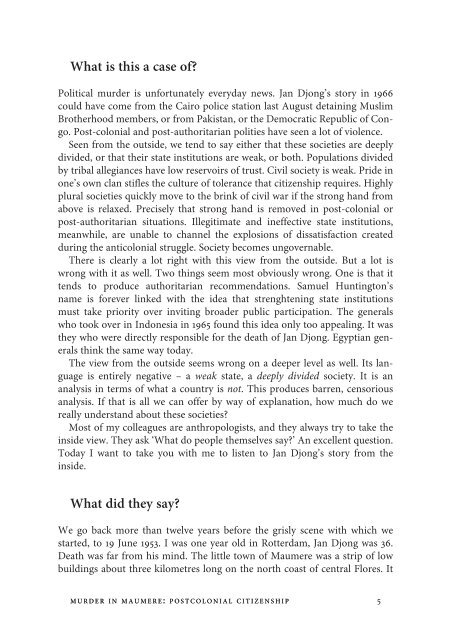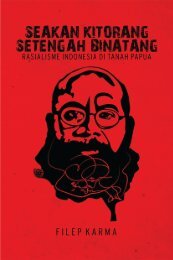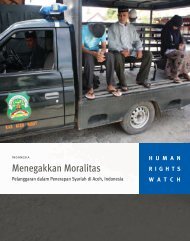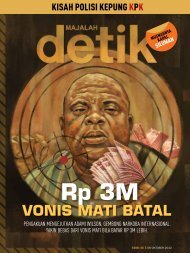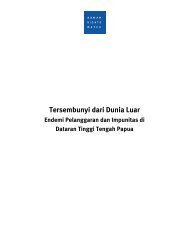Postcolonial Citizenship
PDF-6104Weboratie_Van_Klinken_-_DEF
PDF-6104Weboratie_Van_Klinken_-_DEF
Create successful ePaper yourself
Turn your PDF publications into a flip-book with our unique Google optimized e-Paper software.
What is this a case of?<br />
Political murder is unfortunately everyday news. Jan Djong’s story in 1966<br />
could have come from the Cairo police station last August detaining Muslim<br />
Brotherhood members, or from Pakistan, or the Democratic Republic of Congo.<br />
Post-colonial and post-authoritarian polities have seen a lot of violence.<br />
Seen from the outside, we tend to say either that these societies are deeply<br />
divided, or that their state institutions are weak, or both. Populations divided<br />
by tribal allegiances have low reservoirs of trust. Civil society is weak. Pride in<br />
one’s own clan stifles the culture of tolerance that citizenship requires. Highly<br />
plural societies quickly move to the brink of civil war if the strong hand from<br />
above is relaxed. Precisely that strong hand is removed in post-colonial or<br />
post-authoritarian situations. Illegitimate and ineffective state institutions,<br />
meanwhile, are unable to channel the explosions of dissatisfaction created<br />
during the anticolonial struggle. Society becomes ungovernable.<br />
There is clearly a lot right with this view from the outside. But a lot is<br />
wrong with it as well. Two things seem most obviously wrong. One is that it<br />
tends to produce authoritarian recommendations. Samuel Huntington’s<br />
name is forever linked with the idea that strenghtening state institutions<br />
must take priority over inviting broader public participation. The generals<br />
who took over in Indonesia in 1965 found this idea only too appealing. It was<br />
they who were directly responsible for the death of Jan Djong. Egyptian generals<br />
think the same way today.<br />
The view from the outside seems wrong on a deeper level as well. Its language<br />
is entirely negative – a weak state, a deeply divided society. It is an<br />
analysis in terms of what a country is not. This produces barren, censorious<br />
analysis. If that is all we can offer by way of explanation, how much do we<br />
really understand about these societies?<br />
Most of my colleagues are anthropologists, and they always try to take the<br />
inside view. They ask ‘What do people themselves say?’ An excellent question.<br />
Today I want to take you with me to listen to Jan Djong’s story from the<br />
inside.<br />
What did they say?<br />
We go back more than twelve years before the grisly scene with which we<br />
started, to 19 June 1953. I was one year old in Rotterdam, Jan Djong was 36.<br />
Death was far from his mind. The little town of Maumere was a strip of low<br />
buildings about three kilometres long on the north coast of central Flores. It<br />
MURDER IN MAUMERE: POSTCOLONIAL CITIZENSHIP 5


